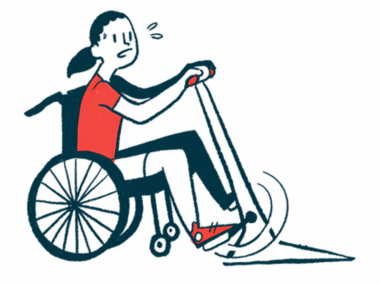‘Hidden’ Disabilities Fairly Common at RRMS Diagnosis, Study Finds
Written by |

Many people newly diagnosed with relapsing-remitting multiple sclerosis (RRMS) experience substantial “hidden disabilities,” such as depression or fatigue, a study highlights.
Findings indicate that treatment with disease-modifying therapies generally does not affect the severity of these problems, at least in the short term.
“Considering the substantial impact that hidden disabilities have on patients, ranging from effects on relationships with family and caregivers to employment, it is vital that more research focusses on this unmet need,” the researchers wrote.
The study, “The influence of disease-modifying therapy on hidden disability burden in people with newly diagnosed relapsing-remitting multiple sclerosis,” was published in Multiple Sclerosis and Related Disorders.
Some kinds of MS-related disability, such as difficulty walking, may be apparent on sight. However, other problems associated with MS — such as depression, anxiety, fatigue, sleep difficulties, cognitive impairment, and pain — can be less obvious but still substantially affect daily life. These “hidden” disabilities have generally received less focus in MS research than physical impairments.
More than a dozen disease-modifying therapies (DMTs) are approved to treat RRMS. These medicines have been proven to alter the disease’s progression by reducing the risk of relapses and delaying the progression of physical disability. The impact of these treatments on hidden disability is less clear.
Using data from the Scotland-wide national database FutureMS, a team of scientists in the U.K. and Germany identified 440 people (mean age, 37.4) who had been diagnosed with RRMS within six months. The participants underwent an initial battery of evaluations (baseline measures), and nearly 90% (392 patients) were again evaluated one year later.
After the baseline evaluations, slightly more than two-thirds of the patients elected to start on a DMT. The specific DMTs used were chosen based on each individual’s unique situation, at the discretion of the treating clinician. The most commonly prescribed DMTs were Tecfidera (dimethyl fumarate, 148 patients), Copaxone (glatiramer acetate, 52 patients), and interferon therapies (29 patients).
Based on baseline assessments, 58% of the patients (255 out of 440) were classified as initially having a “low” burden of hidden disability, whereas 25.4% had “moderate,” and 16.8% had a “high” hidden disability burden.
“Almost half of participants experienced moderate to high levels of hidden disability burden at baseline,” the scientists wrote. “These individuals scored particularly highly on measures of fatigue, depression and anxiety whereas most performed well on the included cognitive measures.”
One year later, most patients — 70.2% — were still in the same category of hidden disability burden. A considerable number (26.1%, 115 patients) improved — for example, transitioning from a “high” to “moderate” hidden disability category — while 3.7% (16 patients) experienced a worsening in such burden.
Notably, changes in hidden disability were not associated with changes in physical disability or measures of disease activity on MRI scans.
The researchers then conducted a battery of statistical analyses to look for associations between DMT use and changes in hidden disability. Results showed that treatment with the DMTs Gilenya (fingolimod) and Mavenclad (cladribine) were significantly linked with improvements in hidden disability burden after one year.
“Our analysis identified a significant association of category 2 DMT treatment [Gilenya and Mavenclad] with improvement in hidden disability burden. However, given the small number of participants and the comparatively short treatment duration, this finding should be interpreted with caution,” the team wrote.
For other DMTs, there was little association with changes in hidden disability severity.
“Our results indicate that, for the majority of DMTs used early in the disease, there is little evidence of a substantial impact on hidden disability burden in the short term,” the researchers wrote.
These findings have implications for how MS is treated in the clinic, the researchers said, since data suggest that escalating DMT treatment is unlikely to benefit patients who are mainly experiencing problems related to these hidden disabilities.
“Our results suggest that hidden disabilities do not constitute an indication for escalating therapy in the short term,” the team wrote.
The researchers stressed that this was an observational study, with use of various DMTs and a fairly short follow-up time. They stressed a broader need for research into ways to ease hidden disability for people with MS.
“Our exploratory data are observational, with scope for attendant biases, but highlight the need for further study including longer-term evaluation as well as randomised trials for non-motor disability,” the researchers concluded.






